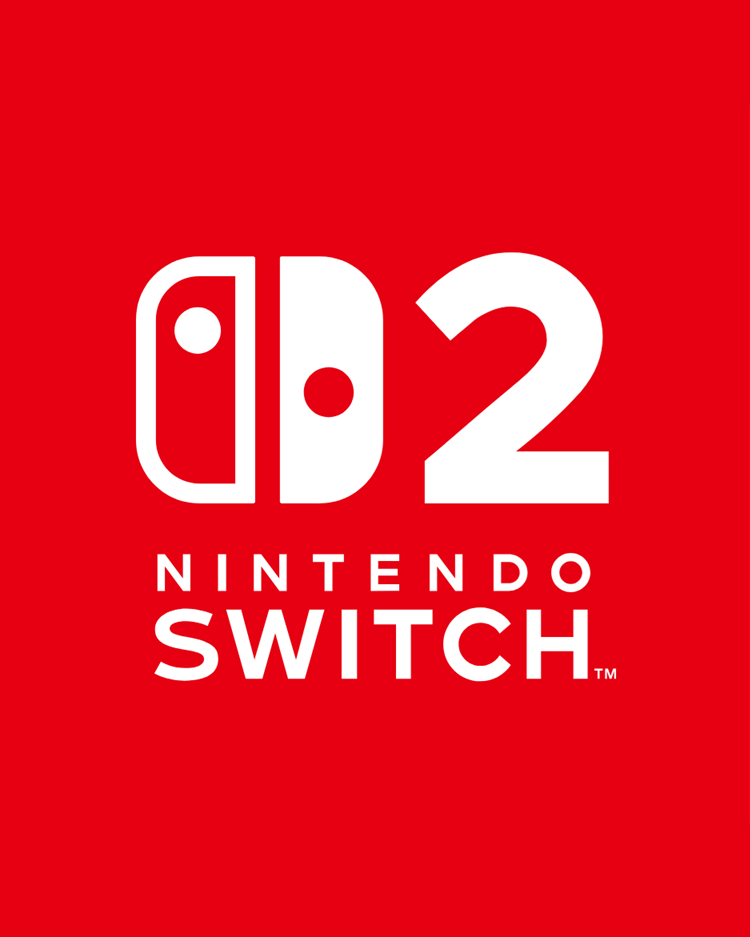Piepacker cloud gaming takes after Nintendo
I found the retro cloud gaming service Piepacker the best way it was most likely meant to be found: not by a press launch in my inbox or a pitch from somebody in public relations, however when a buddy talked about it in a WhatsApp group and invited me to play. I’d by no means heard of it, and the identify sounded foolish, however my buddy stated it had some cool outdated SNK video games out there to play. I watched the video on the web site and it appeared enjoyable.
The pitch may be very easy: basic video games, playable immediately in your browser, with — and that is the essential half — multiplayer enabled and built-in video chat. It’s cloud gaming and a digital hangout rolled into one, it’s free to play, and welcoming a buddy is as simple as pinging them a hyperlink.
A number of issues struck me as immediately interesting about this idea. The immediacy, in fact, is one thing that every one cloud gaming providers share. However the social component appeared essential too, as did the best way this resonated with the video games on the service, that are largely native multiplayer video games from arcades or from outdated house consoles: easy, direct video games which can be designed to be performed with somebody proper subsequent to you. Piepacker, with its distinguished video chat and straightforward game-switching, places the social expertise earlier than the video games themselves. It creates an internet area for relaxed, chatty, casual gaming periods with associates — and, nearly as a byproduct of this, it will get so much nearer to the unique multiplayer expertise of a few of these outdated video games than even online-enabled reissues can. It’s a sofa within the cloud.
The lineup of video games isn’t stellar, to be sincere; you received’t discover something from the heydays of Capcom, Sega, Konami, or Halfway right here. There are a handful of true gems, like Metallic Slug X, Windjammers, and King of Fighters ’98, whereas a cope with veteran UK outfit Workforce 17 has introduced just a few classic Britsoft social-gaming classics like Worms World Social gathering and Wise Soccer. Piepacker has additionally experimented with creating and publishing new indie titles for the platform, together with the Bomberman-style Arsène Bomber.
However this isn’t actually the purpose. The enjoyable of Piepacker, when you’re in and chatting, is to poke round its archive and check out among the random esoterica you would possibly discover there, such because the extraordinarily enjoyable Neo Geo fighter Actual Bout Deadly Fury, or the fashionable NES recreation Micro Mages, or the entertainingly dumb zombie brawler Night time Slashers. Since you’re with associates, it may possibly even be enjoyable to play one thing as objectively horrible because the PlayStation kart racer SCARS for a couple of minutes. As a rule, on Piepacker, the extra senseless the sport, the extra simply dialog will stream — so that you don’t essentially need to be too engaged anyway.
Piepacker has but to essentially make a reputation for itself, though it has attracted help from the retro group with a profitable Kickstarter marketing campaign, in addition to funding from the Lego Group, amongst others. It’s not essentially the longer term, however whether or not it succeeds or not, there’s something there: a unique solution to conceive of cloud gaming, contrasting with the high-tech method of the likes of Google Stadia and Xbox Cloud Gaming.
“Once I was a child, I used to have the Sport Boy, and I used to be dreaming about one other machine, which was the Sport Gear by Sega,” co-founder and CEO Benjamin Devienne says over Zoom from Bordeaux in Southwestern France. Devienne is a good-looking, enthusiastic entrepreneur sort, and he’s about to invoke the legendary Nintendo engineer Gunpei Yokoi’s “lateral considering with withered expertise” method to elucidate the considering behind Piepacker.
“The distinction between these two handheld gadgets was very fascinating,” says Devienne. “The Sport Gear was arguably higher with, you already know, coloration display screen, higher sound chip, possibly higher video games. However the issue was, it was dearer. Additionally you wanted plenty of batteries to undergo the day. On the opposite aspect, the Sport Boy was a lot decrease tech, like, black-and-white display screen, fairly dangerous sound, and you could possibly barely see what was occurring on the display screen. Nevertheless it was cheaper, and the battery was way more strong.
“In hindsight, [Nintendo] received this battle with accessibility and low tech. And after we began to take a look at the cloud gaming area, we have been like, Hey, each service is superior, like Google Stadia, PlayStation Now, however they’re designed for a world the place you might have fiber, the place it’s 4K, 60 frames per second. This can be a world the place you might have plenty of Sport Gears, and we’re like, Hey, can we construct the primary Sport Boy of the cloud gaming area — one thing that’s a lot decrease tech, however with a a lot decrease footprint?”
The result’s a cloud gaming service that makes use of 60 instances much less bandwidth than Google Stadia. That’s excellent news for Piepacker, decreasing its prices significantly and making its free-to-play enterprise mannequin doable. It’s excellent news for the atmosphere — cloud gaming providers that require excessive bandwidth and plenty of computing energy on the server finish might be very energy-intensive over lengthy play periods, as Eurogamer has reported. And it’s nice information for customers who’ve lower than stellar web service at house, whether or not that’s in Southwest France (“We now have good wine and cheese, however dangerous web!” quips Devienne) or in rising markets like Brazil, India, Southeast Asia, and North Africa, the place infrastructure remains to be catching up.
A part of Piepacker’s leanness is in its proprietary expertise (which can be the place it will get its curious, and shortly to be modified, identify: “packing” is a means of compressing processes on a server to make use of much less bandwidth, and the processes that Devienne and his co-founder have been utilizing to experiment with this expertise occurred to be referred to as “pies”). A part of it’s in its philosophy, the place visible constancy can take a again seat to the social interactions which can be the true draw; competing with the house console expertise is just not the purpose. And a part of it’s the selection of retro video games, that are in fact technologically undemanding and far simpler to optimize round.
Retro is the place Piepacker has established its area of interest to date, however for Devienne, it has been a way to an finish for getting the service off the bottom. He’s not interested by making a licensing-based retro streaming catalog like Antstream’s (which has a a lot deeper recreation choice than Piepacker, however lacks its social options). There’s no intention to start out charging a subscription or something of the kind. Slightly, Devienne is hoping to host extra fashionable indie titles and switch Piepacker right into a market the place builders can monetize their video games how they like (with Piepacker taking a minimize, in fact). He suggests Workforce 17’s frantic co-op cooking recreation Overcooked for instance of a title that might work exceptionally effectively on Piepacker, and he’s proper — however Stadia has proven gamers is perhaps unwilling to pay to personal video games solely within the cloud.
Within the meantime, Piepacker is making first rate cash promoting customized 3D filters for its video chat home windows. (Devienne used to do evaluation and analysis for Fb and Twitch, and as such he’s unfazed that gamers are prepared to spend as much as $1,500 on animated digital masks.) Additional off sooner or later, there’s additionally a scheme for Twitch integration that may permit viewers to pay to leap into streamers’ video games in the event that they’re hosted on Piepacker, with streamers taking 70% of the income and Piepacker the remainder.
“One thing that basically blew my thoughts once I was at Twitch was Twitch Performs Pokémon,” he says. “I used to be like, why is no one doing video games that use this sort of mechanic the place we are able to contain the viewers? We should always make one!” That’s the place Arsène Bomber began out, as a prototype that allowed viewers of a charity stream on Twitch to vote to regulate a UFO that would disrupt the Bomberman-style motion. He imagines viewers paying to problem their favourite streamer at Avenue Fighter, or to affect a single-player recreation with gadgets, cheats, or further enemies, in the identical means they tip streamers now.
All of it comes again to human connection. Earlier than Piepacker had video chat, Devienne seen in an early take a look at that the majority gamers had Zoom or Hangouts open on the identical time. When the characteristic was built-in, habits modified. “We realized that folks began to devour video games very in a different way than they devour video games on different platforms. For example, 70% of the time, they contact the gamepad, however 30% of the time, they don’t contact something. They simply chat. To me, Piepacker resembles so much the sort of expertise you might have while you invite associates, you’re across the desk enjoying, like, a board recreation or D&D, and the sport nearly turns into an excuse [for] dialog. It’s, you already know, a solution to join with different individuals.” He puzzled if gamers have been returning to the service for the video games or for his or her associates, so in one other take a look at, he remoted teams and began eradicating the supply of the video games they preferred finest to see if they’d hold coming again. They did.
None of that is to say that Piepacker is sure to grow to be a worthwhile, mass-market platform. However what it does is reveal, fairly clearly, the potential of cloud gaming to vary from or increase the gaming experiences we all know, reasonably than simply present a handy solution to entry them. (Google Stadia had a extra grandiose model of this concept, however with the closure of its first-party improvement studios, it appears we received’t get to see that future realized.) Devienne and his staff have zeroed in on the social potential of cloud gaming, and it’s a lesson the larger cloud gamers would do effectively to concentrate to.




